It’s no small job to try and capture the legacy of a figure like the fashion designer Halston in the span of a five-episode series. An Iowa-born milliner-turned-fashion designer and mainstay of disco-era New York nightclub Studio 54, the late Roy Halston Frowick changed the face of American fashion in the ‘70s. His bias-cut, glamour-forward designs were worn by fashion icons like Liza Minnelli, Elsa Peretti, Pat Cleveland, Anjelica Huston, and Bianca Jagger. But while hedonistic excess is the first thing that comes to mind when thinking of Halston, severe minimalism and luxurious fabrics were the touchstones of the brand. And that’s exactly what Jeriana San Juan brought to life when creating the costumes for the Halston series.
“As a costume designer, I had to give a bit of a fashion education, so that people really got the context of how amazingly revolutionary and forward-thinking Halston’s clothes were in their times,” she says. In addition to looking at old photographs of the people portrayed in the Netflix mini-series, San Juan also researched fashion from the ‘60s to late ‘80s. “Studying the fashion from all of those different times was a joy. I went to places like Women’s Wear Daily and the Conde Nast archives at Vogue, and studied old columns that were talking about society at the time, the music that was playing on the radio, and the circle of artists and friends that Halston was surrounding himself with,” says San Juan. “It never really felt like work, it felt like a celebration of fashion.”
This comes through on-screen. The costumes that she assembled are full of rich jewel colors, flowing fabrics, and sparkling lamé — fitting of the Studio 54 era. San Juan began assembling the wardrobe by sourcing any vintage Halston that she could find. “Vintage Halston pieces are very difficult to find at this point, because, I think, people are really coming around to a consciousness of how important of a designer he was… and have been collecting it,” she says. She then supplemented these with recreations and original designs that her team created. “I really wanted these [vintage] clothes to shine as the thing that you see first on-screen. And so working backward from that, I found ways to nod toward some of his more famous silhouettes of the period, and then created several original pieces in the voice that he was using at that time,” she says.
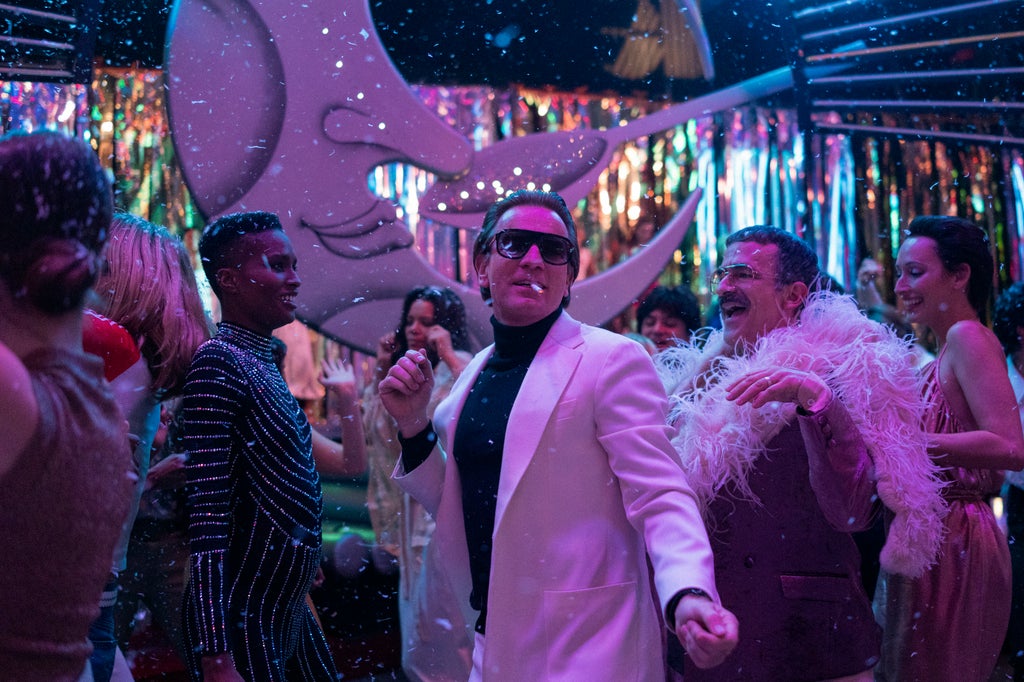
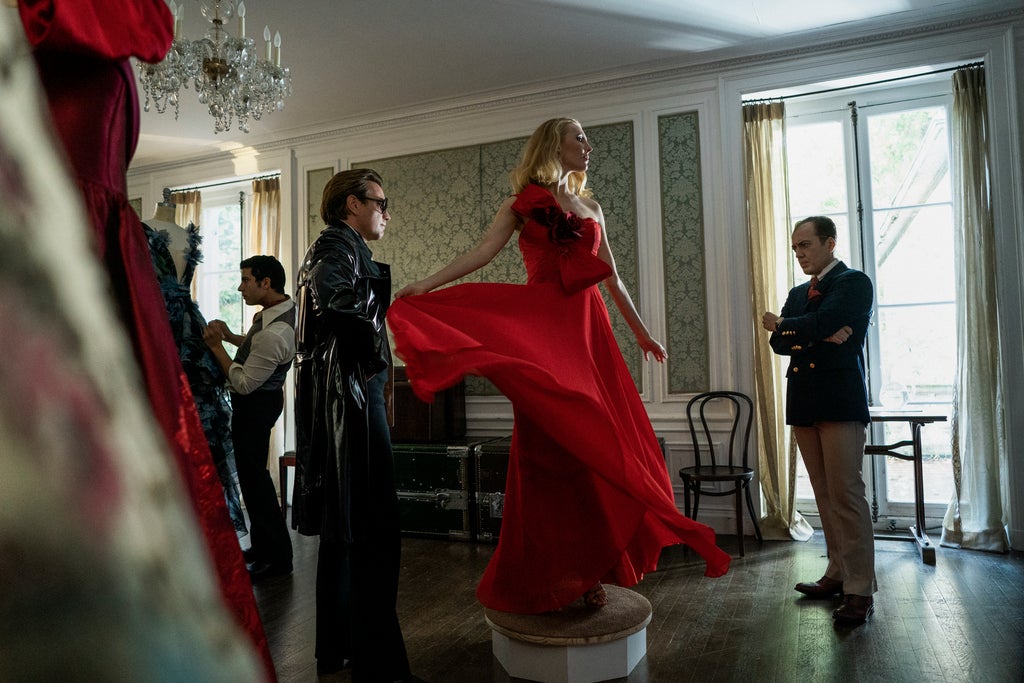
The series focuses on the pivotal looks of Halston’s career — the pillbox hat that Jackie Kennedy wore to John F. Kennedy’s inauguration, the rise of the Ultrasuede wrap dress the designer became known for, and the Battle of Versailles fashion show, the legendary event where five Parisian couturiers (Yves Saint Laurent, Pierre Cardin, Emanuel Ungaro, Christian Dior’s Marc Bohan, and Hubert de Givenchy) competed against a quintet of American designers (Halston, Oscar de la Renta, Bill Blass, Anne Klein, and Stephen Burrows).
San Juan recalls going into “full-on Carmen Sandiego” mode, studying photographs from the 1973 show and watching the Battle at Versailles documentary, which she found so helpful she made it a “homework assignment” for the entire team. “I found myself as a private investigator at first, gathering whatever images I could find and sort of piecing a puzzle together in what he showed while at Versailles. Then I needed to find a way to do it somewhat accurately, and also somewhat cohesively, because it was still a TV show,” she says. After deciding to focus on eveningwear looks, she found a vintage Halston caftan that she then used as the cornerstone of the scene.
“There’s a photograph of [American model] Karen Bjornson wearing this really beautiful plunging V-neckline gown that is like a blush pink clear sequin. And so I recreated that one, because it was so gorgeous, and also kind of married the vintage caftan I was able to find,” she says. “I also wound up paying tribute to this gold chiffon, sort of Greek goddess dress that Pat Cleveland wore, and then sort of build out and also take creative license, so that all of these dresses when seen together on stage, would really feel cohesive and harmonized.”
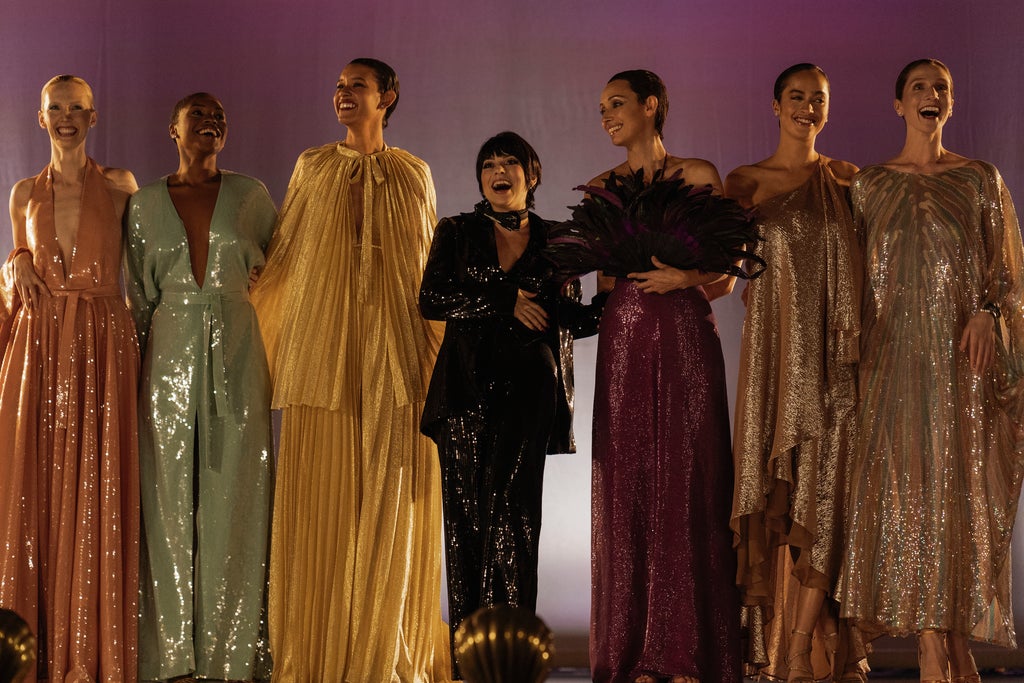
While San Juan tried to remain as authentic as possible, she did change Minnelli’s costume for her dance number at Versailles, opting for a sequin vest and pants that the Cabaret star wore for a different occasion in real life. “Because we were condensing our experience of Versailles, and what we were able to see into that world, I really wanted to do a performance costume for her, that she would be able to dance in and perform in, and something that felt quintessentially Liza of that period,” she says. “I just felt like it was a real iconic look for Liza that really spoke to Cabaret, which she was sort of hot on the heels of that fame. It just kind of felt like the right thing.” It’s this type of artistic license that allows for the full scope of Halston’s design creativity to come throughout in the 45-minute episodes that focus largely on his personal life, which was marked by drug use, and bad business decisions.
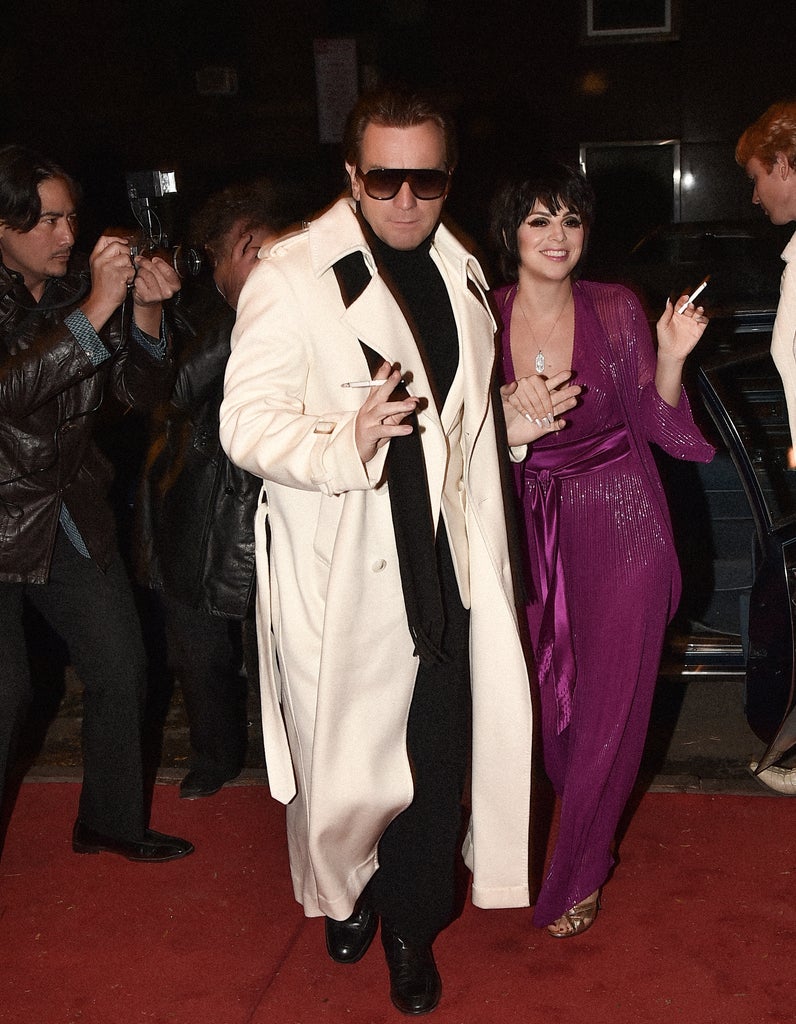
One of the things that San Juan wanted to stay true to was Halston’s attention to fit and fabric. Nowhere is this more apparent than in the tailored looks seen on Ewan McGregor, who plays the designer. Even when donning his signature look — a black turtleneck with matching pants, a white jacket — McGregor’s clothing exudes the kind of luxe, textural artistry that has solidified Halston’s legacy in the fashion world. “I had to ensure that all of the fabrics that he is wearing were exquisite, and that was vital in telling his story authentically — ensuring that the jackets were real cashmere, because they are truly going to drape and hang on his body and photograph in a different way,” says San Juan. “I wanted to do that all as accurately as I could.” That said, she also wanted to challenge the notion that these were the entirety of his wardrobe: “I really wanted to show him as three-dimensionally as possible, and not get too caught up in something that would feel almost like a uniform.” To ensure that, she added dashes of scarlet red and pieces like a leather trench coat (top photo) to his looks.
Halston’s most fanciful creations come to life in the 1968 fashion show the series uses to portray the start of the creative’s illustrious career as a clothing designer that features the tie-dye caftan collection. After finding two original tie-dye pieces — one from a vintage curator, the other from her friend’s private collection — San Juan once again built the rest of the line around them. The result is a color-filled runway performance full of dancing looks that make it easy to imagine the world falling in love with Halston right at that moment. “His tie-dye caftans feel so of that period, sort of iconic for that point in time, when [the] hippie [aesthetic] had sort of taken a flip from being a youthful rebellion movement to being a fashion movement,” San Juan says.
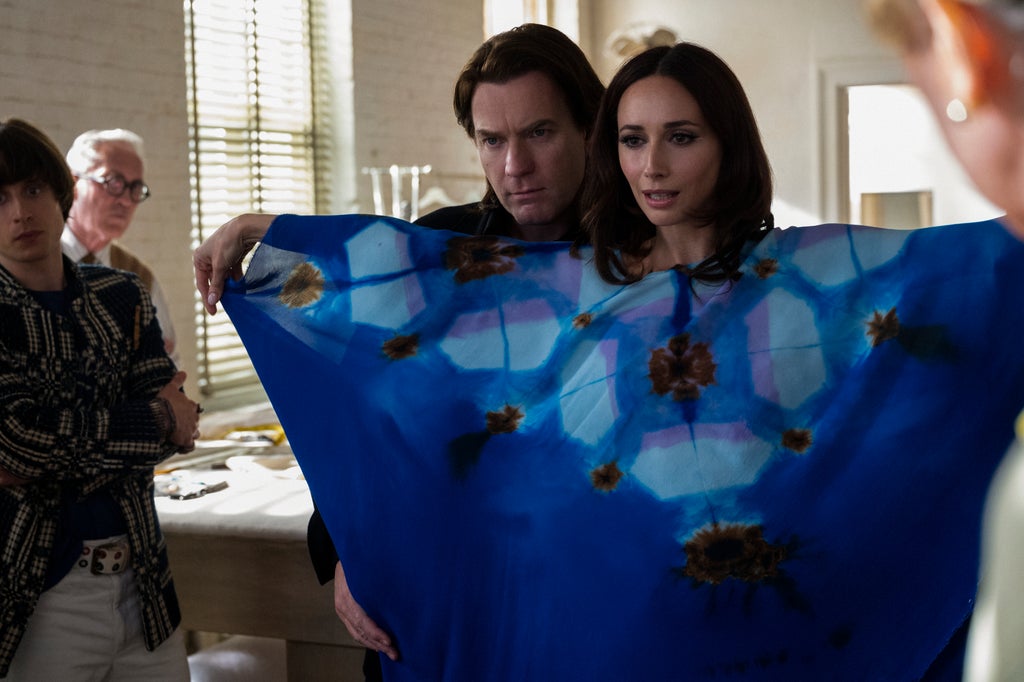
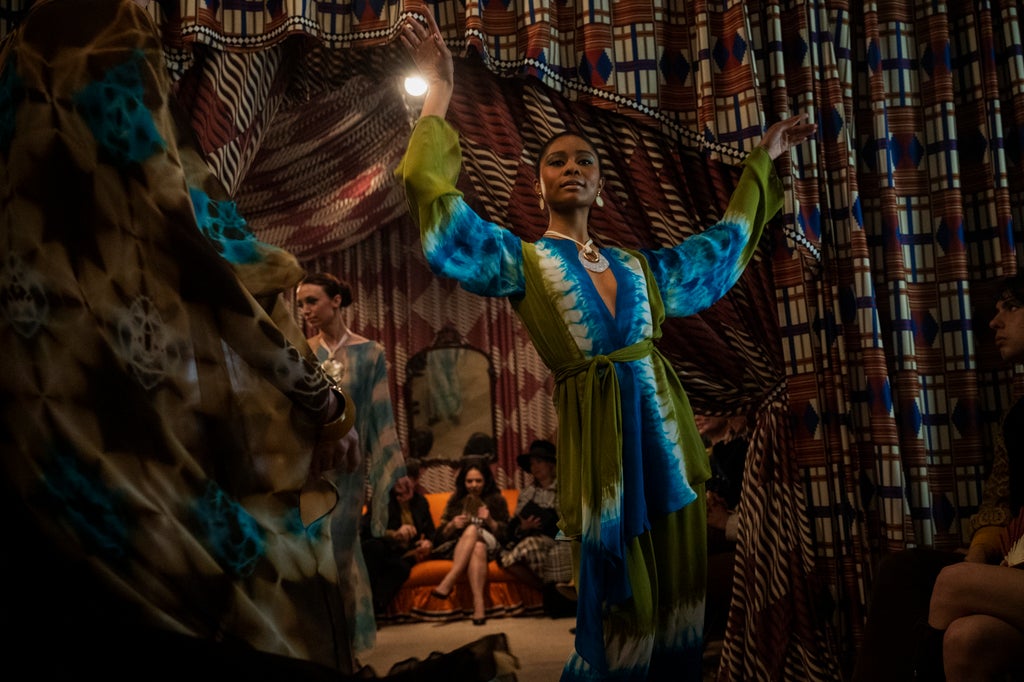
But while the tie-dye caftans do feel of the designer’s time, they are also perfectly on-trend today when the pandemic has caused a resurgence in the DIY print. “The whole relevance of tie-dye right now is kind of wild,” San Juan says. “He was such a forward thinker… Halston really was so timeless with his clothes. They’re very hard to date, because the look feels so eternal, and that, I think, that’s part of the reason why we all love Halston.”
Halston is out on Netflix on May 14.
Like what you see? How about some more R29 goodness, right here?
Zamunda’s Fashion Came To Life In Coming 2 America
Law Roach’s Costumes Shine In Malcolm & Marie
The Dark Significance Behind Ratched's Costumes
from Refinery29 https://ift.tt/3oeNz40
via IFTTT
